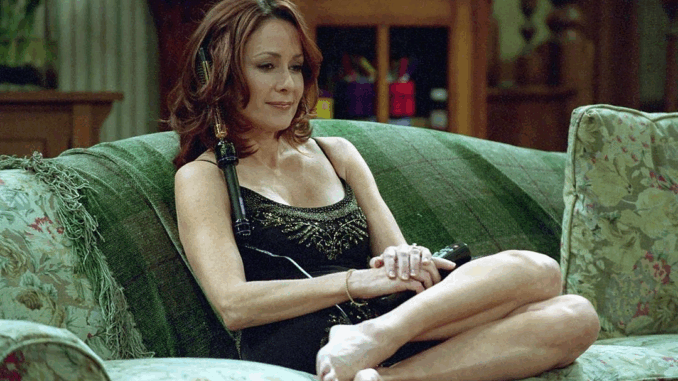
Twenty-five years ago, Everybody Loves Raymond aired an episode that wasn’t just memorable—it shook the very foundation of what a sitcom could be. Titled “Bad Moon Rising,” this standout installment delved into emotional territory most comedies avoided. By shining a spotlight on real marital tension and raw emotions, the show opened doors for future sitcoms to embrace authenticity and complexity.
What Made “Bad Moon Rising” So Groundbreaking?
This episode didn’t rely on laugh tracks or goofy setups. Instead, it tackled a very real moment between Ray and Debra: her emotional breakdown triggered by anger and frustration. Viewers witnessed an argument so intense that Debra physically pushed Ray into furniture—a dramatic departure from the usual comedic squabbles.
1. Raw Emotion Replaced Canned Comedy
Before this episode, most sitcom conflicts were mild—misunderstandings over dinner orders or an off-color joke. But this time, the show embraced true emotional upheaval. It felt honest, even messy. It dared to show what real relationships sometimes include: love tangled up with hurt.
2. Humor and Reality Collided
By overlaying heartfelt conflict with comedy, the show struck an emotional balance rarely seen on network television. It asked audiences to laugh, but also to reflect. Was this funny? Was it upsetting? Everybody Loves Raymond held the mirror up to those questions.
3. Addressing a Taboo Topic Head-On
PMS hadn’t been discussed openly in sitcoms before. By placing it at the center of the conflict, the episode challenged viewers. It risked reinforcing stereotypes, but it also gave space to real experiences many people felt but rarely saw portrayed honestly.
4. Emmy Recognition That Validated Bold Storytelling
The episode earned major awards and nominations, proving that authenticity could win over critics and audiences alike. Viewers and industry insiders acknowledged: this wasn’t cheap drama—it was high-quality storytelling.
5. Evolving Female Representation
Through Debra’s journey, the show explored how women’s emotions had long been simplified. She was more than a cute, supportive spouse—she was flawed, angry, vulnerable. That complexity influenced how future shows built female characters.
6. Memorable Scenes That Broke Through
That couch confrontation, the hit lines, Debra’s emotional pacing—moments like these lingered longer than any punchline. They became part of sitcom legend, proving that serious moments could outshine standard gags.
7. Redlining Genre Expectations
Everybody Loves Raymond mostly followed sitcom formulas: weekly problems, neat resolutions. But “Bad Moon Rising” flipped that formula. It slowed down the pacing, deepened the characters, and resisted tidy endings.
8. Paving the Way for Sitcom Evolution
Modern comedies owe a debt to this episode. Subsequent shows started unafraid to reveal emotional vulnerability. Whether it’s awkward parenting in Modern Family or cultural identity in Black-ish, many owe their narrative courage to Ray and Debra’s explosive moment.
9. Navigating Audience Discomfort
Some viewers squirmed. Others appreciated the realism. The episode proved that sitcoms don’t always have to be pleasant escapes. They can challenge you—and still make you laugh.
10. Turning Setup into Substance
Most sitcoms set up jokes—they didn’t escalate them into emotional crises. “Bad Moon Rising” transformed a marital squabble into something that felt like a mini-drama. That kind of depth was rare—and refreshing.
11. Fostering Real Conversations at Home
Many fans reported discussing their own relationships in the wake of the episode. It did more than entertain—it inspired empathy and honesty among viewers. That’s the mark of powerful storytelling.
12. How It Propelled Careers Forward
Patricia Heaton’s performance earned industry acclaim. Phil Rosenthal and Ray Romano got respect for showing creative courage. The episode proved that sitcoms could launch stellar creative moments, not just catchy one-liners.
13. A Reference Point for Sitcom Critics
Critics and fans still bring up this episode as a turning point. It’s a shorthand for narrative risk-taking in a genre known for formula. It showed how one bold move could resonate for decades.
14. Subtle Plot, Heavy Impact
There were no guest stars or wild hijinks. The story focused on two people arguing on a couch. But the consequences felt huge. That simplicity—and depth—was a lesson in character-driven drama.
15. Why We Still Talk About It 25 Years Later
Perhaps it’s nostalgia. Perhaps it’s validation that human stories matter. Or maybe it’s just that no matter how many shows come and go, this episode reminds us that real connections—flawed and imperfect—are worth watching.
Conclusion
Twenty-five years after its premiere, Everybody Loves Raymond’s “Bad Moon Rising” continues to resonate. It shifted sitcom storytelling from surface laughs to emotional discovery. It was brave, messy, funny, and tough—all at once. That leap onto the emotional edge didn’t just redefine one sitcom—it reshaped the comic landscape forever.
FAQs
1. Why is this episode called controversial?
Because it centered on Debra’s emotional outburst—and introduced friction that felt raw rather than staged.
2. Did critics praise the episode at the time?
Yes. It earned awards and marked a creative turning point for public praise.
3. Did the show address the aftermath of that argument?
Later episodes dealt with lingering effects on their relationship and showed that reconciliation takes time.
4. Can you still watch the episode in syndication?
Absolutely. It airs regularly and often stands out thanks to its depth and emotional power.
5. Have modern sitcoms followed this example?
Yes. Shows like Modern Family, Black-ish, and This Is Us build dramatic tension within comedic frameworks—and owe a nod to how Raymond broke genre expectations.
